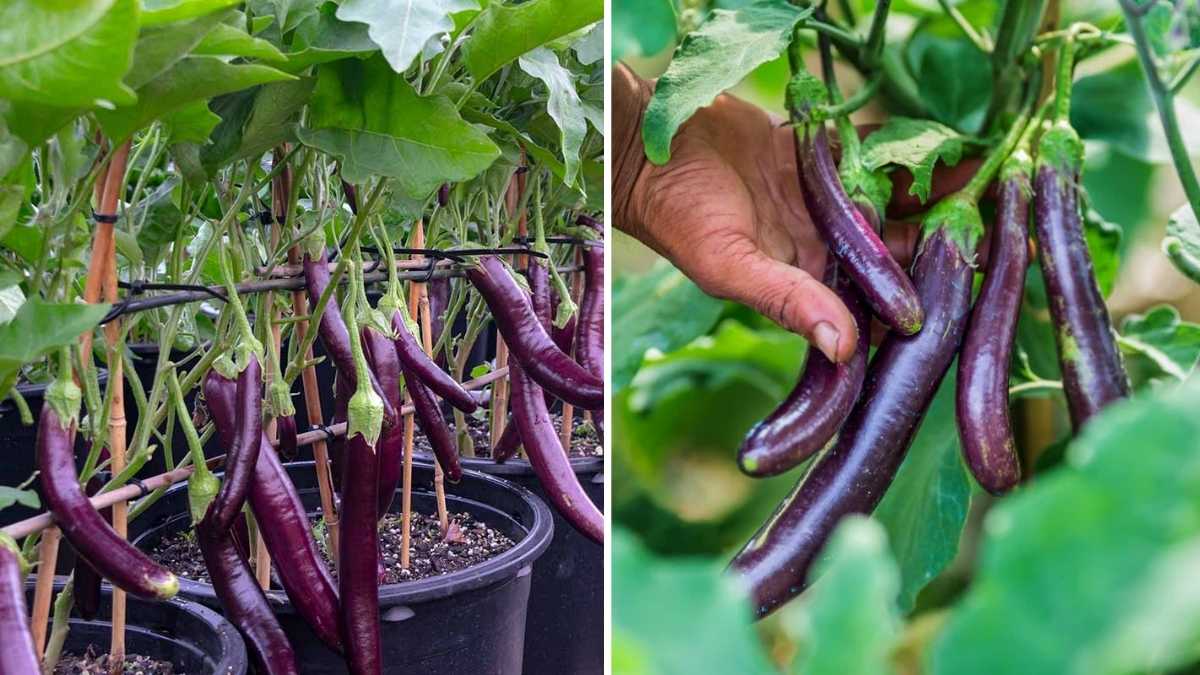Eggplants are a beautiful and productive addition to any garden, providing both culinary versatility and aesthetic value with their vibrant fruits. For city gardeners with limited space, growing traditional, large eggplants may not be feasible. Thankfully, compact and dwarf eggplant varieties are perfect for urban settings, taking up less space while still yielding a bountiful harvest. Here’s a comprehensive guide on how to successfully grow compact eggplant varieties in your U.S. city garden.
Understanding What Eggplant Is
Eggplant, also known as aubergine in some parts of the world, is a warm-season vegetable that belongs to the nightshade family, the same group as tomatoes and peppers. It is grown for its smooth, glossy fruits, which can be purple, white, green, or even striped depending on the variety.
Though commonly thought of as a vegetable, eggplant is technically a fruit because it grows from the flowering part of the plant and contains seeds. Its mild flavor and meaty texture make it a popular ingredient in cuisines around the world, from Mediterranean dishes like ratatouille to Asian stir-fries and grilled recipes.
Eggplants thrive in warm weather and need plenty of sunlight to produce their best yield. Compact varieties are ideal for urban gardeners since they require less space but still deliver high productivity and appealing fruits.
Choosing the Right Compact Eggplant Variety
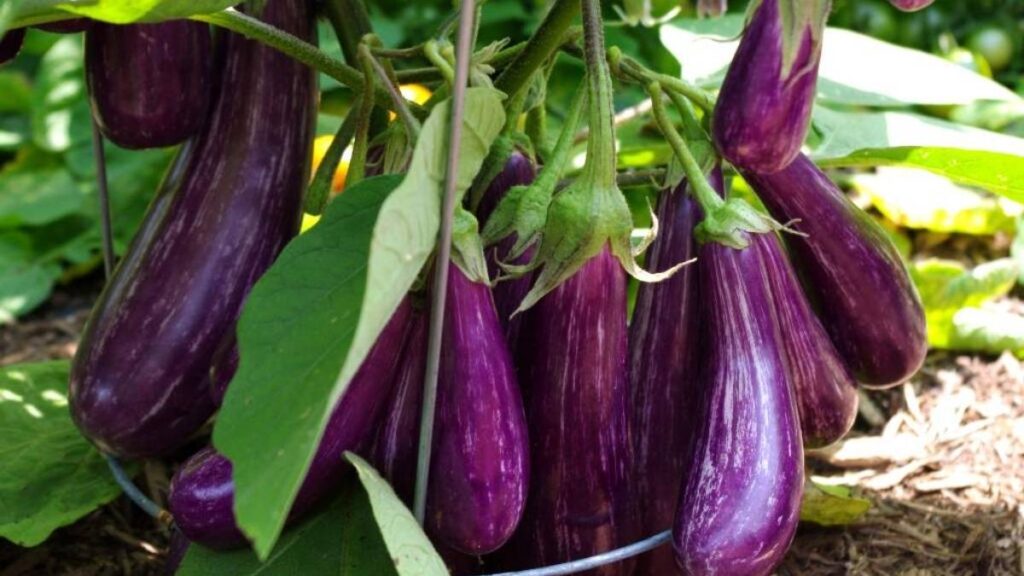
Selecting the right compact eggplant variety is key to a successful urban harvest. These varieties are designed for small spaces and typically grow between 18 to 24 inches tall, making them ideal for container gardens, patios, and small beds. Some top compact eggplant varieties to consider include:
- Patio Baby: A dwarf variety perfect for containers, producing small, round, deep purple fruits that are sweet and tender.
- Fairy Tale: Known for its striking purple-and-white striped fruits, this variety is also well-suited for small spaces.
- Baby Belle: A compact, early maturing eggplant with a mild flavor and attractive, small fruits.
These compact varieties are easy to maintain and require less space than traditional eggplants, making them perfect for smaller urban gardens.
Preparing Your Garden Space
Eggplants need plenty of sunlight to thrive, so choose a location that receives at least six hours of direct sunlight each day. Whether you’re growing in raised beds, containers, or small garden plots, the following considerations will ensure your plants grow strong and healthy:
- Sunlight: Eggplants require full sun six to eight hours a day for optimal growth.
- Soil: They prefer well-drained, fertile soil. Mix organic compost into the soil to improve fertility and ensure good drainage.
- pH Level: Aim for a slightly acidic to neutral pH level (6.0–7.0). You can test your soil and amend it as needed.
If you’re planting in containers, make sure to choose pots that are at least 12 inches in diameter and have adequate drainage holes.
Planting Compact Eggplant Varieties
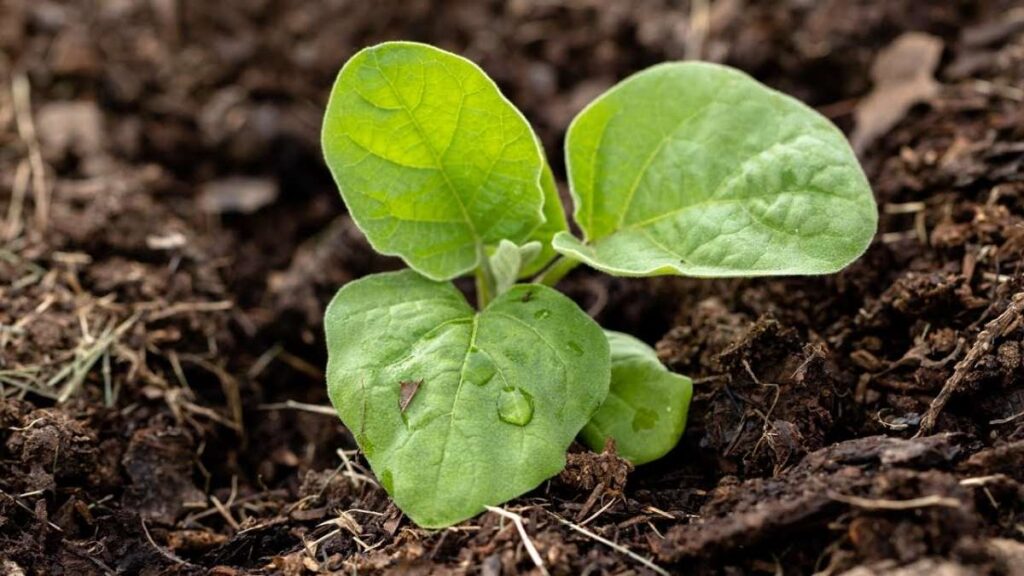
Start your eggplants indoors if you’re growing from seed. Eggplants need a long growing season, so it’s best to sow seeds indoors 8-10 weeks before the last expected frost date in your area. Follow these steps to plant your compact eggplants:
- Indoor Sowing: Use small pots or seed trays, planting seeds about 1/4 inch deep. Keep the soil moist and warm, ideally between 70–85°F.
- Transplanting: When the seedlings are 3-4 inches tall and the danger of frost has passed, you can move them outside. Space your plants about 12-18 inches apart, even for compact varieties.
- Container Planting: For container gardening, choose large enough pots (12-16 inches in diameter) to accommodate the plant’s roots while providing good drainage.
Watering and Fertilizing
Eggplants require consistent moisture to grow well but are susceptible to root rot if overwatered. Here are some tips for watering and fertilizing:
- Watering: Water deeply and regularly, keeping the soil consistently moist but not soggy. Water early in the day to prevent fungal diseases.
- Fertilizing: Use a balanced, slow-release fertilizer when planting. Once the plants start flowering, switch to a fertilizer higher in potassium and phosphorus to support fruit production. Avoid excessive nitrogen, as it can lead to lush foliage at the expense of fruit.
Pruning and Supporting Your Plants
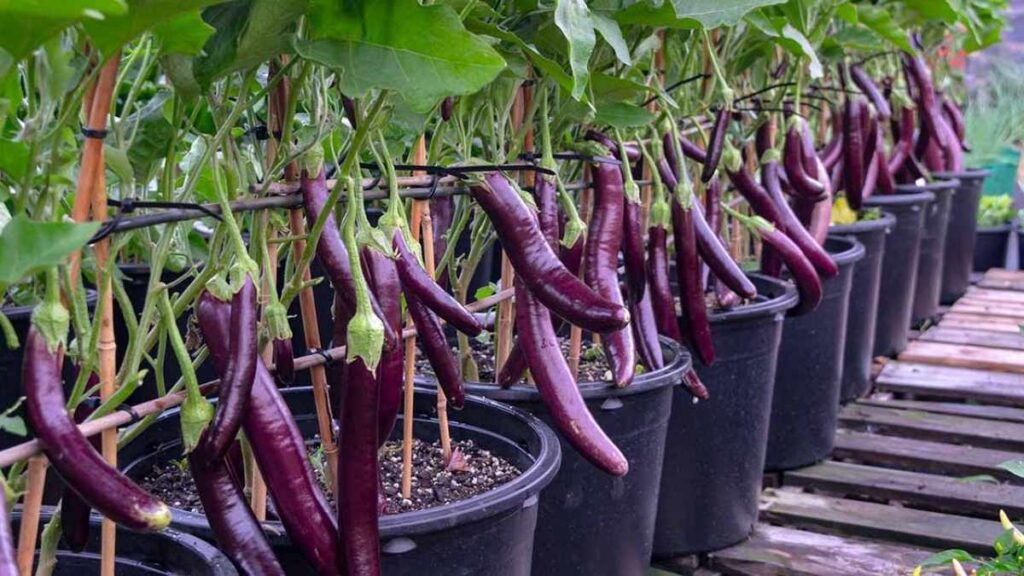
Pruning and supporting your compact eggplants will help ensure healthy growth and high fruit yield. Here’s how to maintain your plants:
- Pruning: Remove any yellowing or dead leaves and trim off any non-productive side shoots to improve airflow.
- Support: Even compact eggplants can become top-heavy as they bear fruit. Use stakes or cages to support the plants, preventing the stems from breaking under the weight of the fruit.
Pest and Disease Management
Urban gardens can be prone to pest infestations, but there are effective ways to keep your eggplants healthy. Watch out for:
- Common Pests: Aphids, flea beetles, and whiteflies are common pests for eggplants. Check plants regularly and remove pests by hand or use insecticidal soap.
- Diseases: Powdery mildew and blight can affect eggplants. To reduce the risk of disease, ensure good airflow around your plants and avoid watering from above. If you spot symptoms, remove infected leaves promptly and apply an appropriate fungicide.
Harvesting Your Compact Eggplants
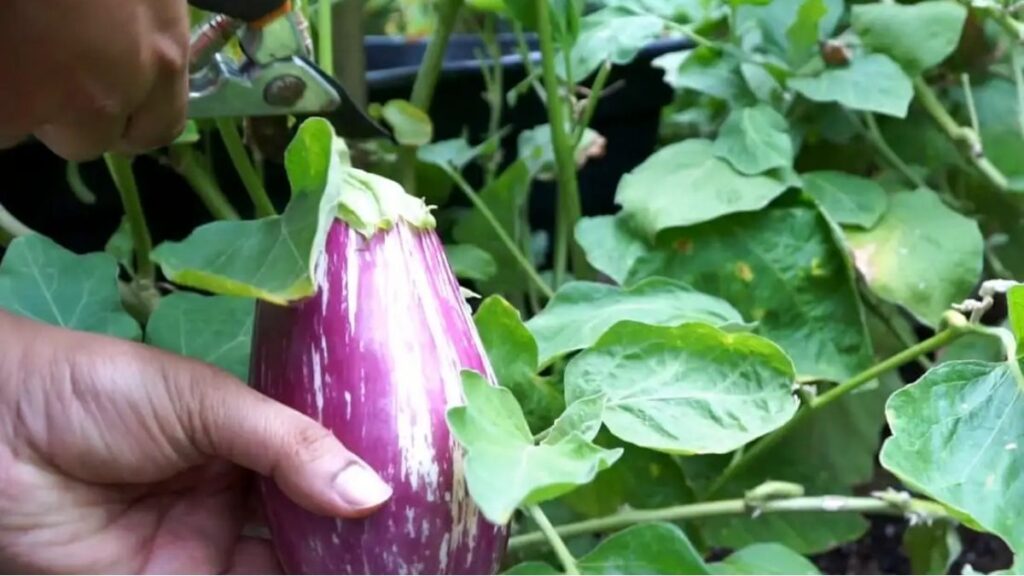
One of the best parts of growing eggplants is harvesting them at the peak of freshness. Compact eggplants usually mature faster than larger varieties, often within 50 to 70 days of transplanting. Follow these tips for harvesting:
- Timing: Harvest eggplants when the fruits are firm, glossy, and vibrant in color. Overripe fruits may become bitter and tough.
- Method: Use a sharp knife or pruning shears to cut the fruit from the plant, leaving a small portion of the stem attached.
Enjoying Your Harvest
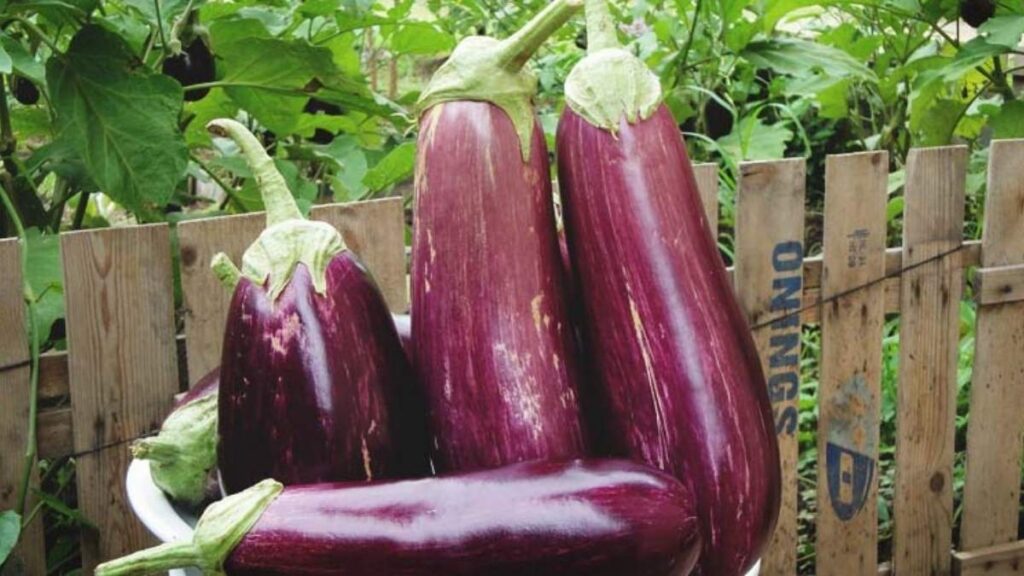
Once your compact eggplants are ready for harvest, there are endless ways to enjoy them. These small fruits have a mild, tender flesh that lends itself well to many dishes, such as:
- Grilled: Slice and grill for a smoky flavor.
- Sautéed: Quickly sauté with garlic and olive oil for a simple side dish.
- Eggplant Parmesan: Use smaller fruits for a more manageable portion size in this classic Italian dish.
- Curries and Stews: Their tender texture makes them an excellent addition to vegetarian curries or Mediterranean stews.
Compact eggplants are also great for stuffing or roasting, providing a versatile addition to any meal.
Tips for Success
To ensure a successful harvest, here are a few final tips for growing compact eggplants in your city garden:
- Monitor for pests regularly, especially in urban environments where pests can thrive.
- Prune frequently to keep the plants healthy and encourage more fruit production.
- Consider container gardening if space is limited you can even move your containers around to maximize sun exposure.
- Mulch around your plants to help retain moisture and keep weeds at bay.
Final Thoughts
Compact eggplant varieties are an excellent choice for gardeners with limited space. With the right care, you can enjoy homegrown eggplants even in a small U.S. city garden. By selecting the right variety, providing sufficient sunlight and nutrients, and keeping an eye on pests and diseases, you’ll be able to cultivate a successful crop of these delicious vegetables.
